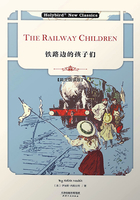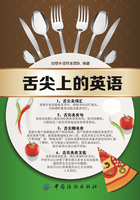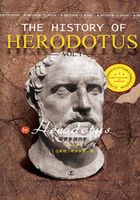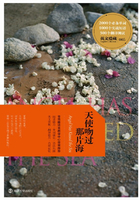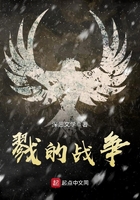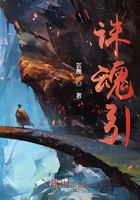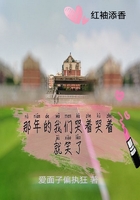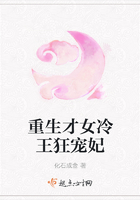Guangdong enters the early stages of a system of contractedresponsibility linking remuneration to output to the peasants before Anhui; in the most trying of times, Deng Xiaoping inves-tigates Guangdong and wants to see the people "drinking night tea"; during the "meeting of seven thousand cadres" Mao Zedong gives his summation; with catastrophes all over the country, Deng Xiaoping shows courage in accepting responsibility, saying "I too played a part in this"; in 1964, Guangdong looks toward taking the first steps towards recovering its former vitality . . .
14
By the end of the 1950s, Guangdong's economy was in a bad way. The former economic centre of south China had been progres-sively marginalised under New China and socialism, its percentage of the national economy slipping along with its economic status. Beginning with land reform, a host of policies were implemented that alienated overseas Chinese with potential to invest, severely impairing their relations with the motherland. The establishment of New China had been a window of opportunity; many of them came back personally or sent their sons to help the new country. A rise in anti-Chinese sentiment in Southeast Asia made the mother-land an even more attractive proposition, but the socialist system of people's communes left no room for foreign investment. Many of those who did return had to do so with nothing but the clothes on their back, neither daring nor able to retain the social status and standard of living to which they were accustomed.
Many overseas investors shrinked back from investing on the mainland. The four Guangdong towns that had sent the largest numbers abroad,[1] all in Jiangmen Prefecture, had a combined over-seas population of 2 million in 90 different countries and regions, most in North America. It was a tradition for these migrants to send money home; a few years after the Republic was founded, schools were built across the area by people like Yang Helian and Huang Xukun and other overseas Chinese followed suit, donating a steady stream of money to pay for students' education. After New China was declared, the flow stopped abruptly.
The local government admitted that "in the early years of Liber-ation, donations home by overseas Chinese and our compatriots in Hong Kong and Macau were relatively few", but that is putting it mildly. According to records, in a 1951 fundraising meeting for the Korean war,[2] overseas donations were recorded as 1,100 yuan. Whether this and other such small contributions were even voluntary is also suspicious. During Land Reform, a series of Left policies were being implemented in Jiangmen, with no special consideration for the property of those living abroad. This had a severe impact on relations with overseas Chinese, most of whom were already living in countries whose relations with China were hostile and suffering suspicion or worse for it. Small wonder they were unwilling to send money.
For centuries, Jiangmen's overseas Chinese had had the tradi-tion of buying land and starting businesses in the homeland. All over the fields of Kaiping and Enping villages stood homes built by money from abroad, including the famous Kaiping Watchtowers, now a world cultural heritage site. From 1950 onwards, however, businesses founded by overseas Chinese such as the Xinjiang Power Company, Jiangmen Paper Factory, the local match factory and a host of shipping and service enterprises were either taken over by the government or run as state-private joint ventures, which quickly put a stop to investments.
In the 1960s and 70s, visitors to Jiangmen from outside the area would see a sight that seemed unreal: out of villages with low, simple buildings would protrude huge, decorated stone watch towers called diaolou built by money from abroad. Kaiping alone had 1,833 of them. As bizarre as it seemed, they were as real as the Forbidden City, with bamboo groves in their shade, water buffalo tied up by the gates, stinking buckets of nightsoil emptied around the base and poor, backwards villages all around. One couldn't help but be amazed to see such architecture in such a place. Nowadays, as world cultural heritage sites the diaolou in Kaiping and Enping enjoy the protection afforded to culturally significant buildings and draw tourists every year. Today's tourists have no way of recre-ating that same sense of wonder however; the thirty years of the Reform Era have stripped the diaolou of their magnificence as people have gotten rich and taller, uglier buildings have popped up all around them. It's easy to dismiss the people here as parvenus and nouveaux riches, but it's hardly surprising that they want to get away from the poverty of their pasts.
Even once the Reform Era began, the home areas of overseas Chinese and their relatives didn't start improving immediately, as for a while it was unclear that the new situation would endure. Between 1978 and 1982, the total value of donations to Jiangmen from Chinese abroad was only 6.45 million Hong Kong dollars (at the time equivalent to 2 million yuan). Not until Li Ziliu became the leader of Jiangmen prefectural government did the situation finally start to improve.
By then, however, it was too late. If Guangdong hadn't had such misguided policies towards overseas Chinese ever since Liberation, waiting thirty years to redress its mistakes, the most developed area of the Pearl River Delta today might not be the special economic zones or the "Four Little Tigers".[3] It was the same story in Hong Kong - it was widely held that class differences inherent to the two economic systems left them as incompatible as fire and water, and so Guangdong's potentially vital economic link was severed, and the province lost all attraction to its own sons abroad. The sheer scale of the missed opportunity here makes one despair.
In the early days of Liberation, Hong Kong could not compare to Guangzhou either in economic size or scale of development. Hong Kongers referred to Guangzhou as "the City" and thought of it as the centre of the province. They saw their own city as a regional centre at most. It had been the only port open to foreign trade before the Opium Wars, with all the advantages that implies, but in the closing off of China's economy to the world that took place after Liberation, Hong Kong quickly supplanted Guangzhou's role and surpassed it in developmental terms by the late Fifties. Eventu-ally it became an economic powerhouse that no city anywhere on the mainland could match.
Guangdong was never a major grain-producing area. It's too mountainous and although the Pearl River Delta is fertile, it's rela-tively narrow and floods are frequent, as are typhoons, so it can't produce enough to feed the province. After Liberation it became a net importer of food. Its agricultural strengths lay in multicrop-ping, its unique geological and atmospheric conditions as well as the combined experience of endless generations of peasants allowing the province to produce saltwater fish, seafood, tropical fruit, vegetables, tropical woods, poultry and sugar. Once the People's Communes were established, however, peasants and grass-roots agricultural production organisations lost decision-making authority over production. The unilateral nationwide drive for enhanced cereal production led to a severe agricultural predica-ment in Guangdong. Peasants became ever more passive, ever more worn out, ever more impoverished.
In the Fifties, China went full speed ahead towards indus-trialisation, but as a coastal area Guangdong was ignored. If it industrialised and was attacked, it would have to be abandoned or defended to the death, and Guangzhou was not an easy city to fortify. Instead, defensive preparations were begun in Zhanjiang, a prefectural city to the southwest. During the first Five-Year Plan, over 160 key industrial projects were launched nationwide but not one was based in Guangdong. The province's plight is easy to imagine. And so, in the years after Liberation Guangdong gradually slipped from a rich province to a poor one, and in the three years of nationwide economic diffculty from 1959 to 1961, the help that was most sorely needed was least forthcoming.
Guangdong's economy was facing total collapse, and the ordi-nary people, particularly in rural villages, were suffering from widespread starvation, but the Great Leap Forward, Party Line and People's Communes (the so-called "three red flags') remained unquestionable for ideological reasons. The policy-formers at the higher levels of Guangdong's government were very clear; if another large-scale movement like this were to occur, there would be worse to come and even more would starve to death. However ardently one supported the "three red flags", there was no bringing back those who had died. And so they knew they had to find a way of communicating, of relaying their honest opinions to grassroots cadres, which had to be absolutely authoritative and not for wider consumption. It was for this purpose that they selected a group of young grassroots cadres with practical work experience and a theo-retical grounding to work for the magazine Shangyou. Xie Fei, at the time a student at the provincial Party college, was selected for this group, going from student straight to civil servant. The intentions of the province leaders were to create a way of guiding grassroots cadres towards changing their theoretical approach to work in order to avoid using methods that risked further jeopardising unre-solvable diffculties in practical work or basic contradictions that arose from the "three red flags", even if such methods did not take the "three red flags" as their starting point.
The leadership of New China was happy to invest money in research into the "Chinese road" of socialism, but the research process consisted of committing a long succession of "errors", then standing up and publicly taking responsibility for this or that period. As far as we know, only Deng Xiaoping spoke plainly and frankly through all of this. For ten years after the eighth CCP National Congress of 1956, Deng was general secretary of the Central Committee. He later described the period as the busiest ten years of his life. The first important role he played in Guangdong also took place in this period, posterity verifying that it was his valuable hard work that allowed the province's economy to recover.
15
Whilst Guangdong did not have the same ability to lead the devel-opment of Chinese socialism like Henan (where the first People's Communes were created) or Liaoning (where the Anshan Iron company's An'gang Constitution became a model for industrial enterprises across China), it led the way in the development of the early stages of a system of contracted responsibility linking remu-neration to output to the peasants long before Anhui did.
Similar to Anhui's system of financial autonomy, free markets and the allocation of private plots from collective land with fixed production quotas that arose slightly later, it first appeared in Guangdong villages and attracted the attention of the Guangdong provincial committee and Southern Provinces Bureau. It came to the Central Committee's notice too, not because of the Guangdong higher-ups' desire to root out heterodoxy but because of the fast results it provided in alleviating food shortages. The government had no choice but to reconsider its policy on village development, even if only as a temporary measure. After Liberation, Mao did not often visit Guangdong, but this was the time during which he visited most frequently. For these visits, the offcial he sent ahead of him to conduct preliminary research into problems concerning the villages and their people was Deng Xiaoping.
After Deng Xiaoping's death, Xie Fei (who by then was Guang-dong Party provincial secretary) wrote in his memorial essay Te People of Guangdong Will Always Treasure the Memory of Comrade Xiaoping: "After New China was founded, Comrade Xiaoping took a great interest in Guangdong's socialist revolution and the construction of socialist enterprise within the province; from the Fifties to the Seventies he visited the province to investigate and guide our work not less than ten times . . . In June 1957, Comrade Xiaoping visited Guangzhou, expressing the Central Commit-tee's instructions to the leading comrades of the provincial Party committee . . . From the 22nd to the 29th of April 1958, he went from a full meeting of the Politburo whose convention Mao Zedong had supported, to research the state of industrial construc-tion in the country. During this time he visited the Guangdong Provincial Farm Tools Reform Exhibition . . . From the 26th of January to the 11th of February 1960, he again visited Guangzhou to investigate and guide our work. Travelling all over, he visited Guangzhou, Hainan Island,[4] Zhanjiang City, Yangjiang County (now a prefecture-level city), Xinhui County, Jiangmen County (now a prefecture-level city), Foshan and other places."
Comrade Xiaoping had an insatiable interest in everything,and was willing to try whatever fresh new ideas he saw. In 1958, as well as playing bridge (card game) he learnt a very popular new game: billiards. He threw himself into it. One time he was arguing tableside with Wang Zhen merry and lively, and to prove his point Xiaoping concentrated all his efforts on his cue. What he hadn't realised was that the carpet wasn't properly secured; he completely lost his balance, fell over and broke his leg. Even the veteran "Tiger General" Wang Zhen was shocked by this, throwing down his cue and calling for urgent help. In actual fact, although Xiaoping had taken a knock, his life was in no danger; this was just Wang behaving as he had done on the battlefield. Deng channelled those years too, gritting his teeth through the pain and not uttering a single sound as he was wheeled all the way to the doctor's room for treatment.
The leg had given him trouble for two years after that; the whole time he'd used a cane to walk any significant distance. This proved hugely inconvenient when he visited Guangdong - he was unable to visit the Leizhou Young People's Canal, which he had really hoped to do. At times however, the cane came in useful, such as when he'd been able to avoid attending the 1959 Mount Lushan meeting on the grounds of illness. In later years he'd say with his own mouth that he had had a part in many of Chairman Mao's mistakes, but he'd had nothing to do with that meeting or what followed it. As a result, as the nationwide situation worsened in the aftermath of the meeting, the government looked desperately for an exit strategy and landed on him. It was in this context that he visited Guangzhou in search of answers.
During his 1960 visit to Guangdong (and Hainan), Deng was the head of an inspection team unprecedented in size: Southern Prov-inces Bureau Chief Tao Zhu came first for preliminary research, and then the rest flew in on six aeroplanes to Zhanjiang airport, a total of 110 cadres (there were no jumbo jets back then) including high-ranking leaders Peng Zhen, Ke Qingshi, Hu Qiaomu, Yang Shangkun, Liu Lantao, Xiao Ke, Wang Renzhong, Xu Bing, Kong Yuan and Li Jingquan. Strictly speaking, rather than a representative of the central government on an inspection tour of the province, Deng was the leader and director of an investigation team. As they set off, the Zhanjiang Party committee had to put several tens of vehicles at their disposal, and owing to the shortages of non-staple foods, had had to commandeer food from all surrounding counties. The local aquaculture bureau also had to ship in seafood.
Because this was a large-scale activity, one which involved Deng Xiaoping no less, their food, lodging and itinerary were all arranged as collective affairs, as Huang Guoqiang, in whose small guesthouse Deng himself stayed, remembers:"No one off-cial got special treatment; they all ate in a large canteen, including Comrade Xiaoping, who sat with all the others around a table full of offcials." His objective was to bring people to the province to see the actual situation, and then look into resolving the problems they uncovered on their return. This trip to Guangdong was completely unlike Comrade Xiaoping's two later southern tours, not least because the later trips had rather clearer objectives; he wanted to see the results of the Special Economic Zones he'd promoted and advocated and would not be distracted. In 1960, by contrast, there was no one defined objective, and so he went on range of visits to different places, looking to understand as much as possible and (more importantly) to have all the other cadres see as much as possible where resolving the problems of China's agriculture and peasantry were concerned.
Deng always appeared very calm. Perhaps this was because he himself had no specific mission on the trip. As soon as he arrived in Zhanjiang, he was drawn in by this charming southern city, its tropical colour dazzling to his unprepared eyes. The sky and the sea were as blue as each other, the sun was shining down from above despite it being winter and the plants shone bright green under it with birds calling out from amongst their leaves. The whole scene left him wide-eyed. The Xiashan District, in which the Party committee was based, had been built around a careful plan, a leftover from the city's time as a French concession. Zhanjiang left a deep impression on Deng, who praised it in unusually unre-served terms:"Everything about Zhanjiang is good: its greenery, its sanitation, its scenery, the whole place is a match for Qingdao!" He also said to Peng Zhen and Ke Qingshi that the city's construction, greenery and sanitation were excellent models worth promoting nationwide.
The first thing Deng saw on his trip that elicited gasps (indeed almost brought him to tears) was not to do with the "three red flags", but with the people's livelihood. Before coming to Zhan-jiang, he had heard that the city was implementing a large-scale waterworks project - the Hedi reservoir and its counterpart, the Leizhou Young People's Canal. As his plane came in to land over Zhanjiang Deng was already impatiently pressing his face to the window to look at the more than one thousand square kilometre surface of the over 1 billion cubic metre body of water, one of the largest in Guangdong.
Another large project that engrossed him was the connecting of the prefecture's largest island, Donghai Island, with the main-land, through the building of an enormous sea wall from which could then be built a salt bed that would produce five hundred thousand tonnes a year. He wrote inions for both this project and the Leizhou Canal. When he arrived at the site of the sea wall, the local leaders suggested that he simply look around the offces and inspect the plans, but he insisted on personally visiting the construction site, crutch in hand.
The site was spectacular, even if the gulf's waters weren't as dramatic as the Yangtze River's Three Gorges. Building a dam across the sea isn't the same as building one across a river; with a river you can wait until the low water period and build it before the rains come back, but with the sea you have to wait for the tides to be fairly even, and then like the first charge against enemy lines, the stones need to be placed in as quickly as possible. Closing the dam is a nerve-racking and magnificent sight, like the final assault on the enemy's last line of resistance. At the construction site neither the workers nor the construction leaders knew that a leader from Beijing was coming to visit. They just stuck to the existing time-table, and at the sound of the bell began their attack on the ocean itself. Ten thousand men charged at the sea, tools in hand, causing all who watched to gasp in admiration.
The sight exhilarated Deng, who was no doubt reminded of the battlefields on which he'd led great armies against his enemies. The thing he was most hoping to see on his trip, however, was the Hedi Reservoir along with the canal that fed from it. On the 15th of May 1958, the Zhanjiang CCP Committee published Deci-sion to construct the Leizhou Young People's Canal, and mobilised some 300,000 people to work on the project. It was completed in only two years, bringing water to the precarious Zhanjiang area and still impressing people with its scale fifty years later. It stands as a classic example of the Great Leap Forward. It could be said that without the Great Leap there would be no canal, or at least that it could never have been built while the country was still so poor. Whilst there is no denying the tragic way it turned out for so many people, nor can the eager pursuit of and willing sacrifices for a better life by the vast majority of the Great Leap's participants be denied. Nor can their spirit of unstinting dedication be erased, nor can one blindly deny the tremendous impetus given to the People by the rallying power of the Party and New China. In Deng Xiaop-ing's words at the time:
"That a project of this scale could have been completed so quickly is all down to the People. The People are the heroes here.""The project has been completed very well. This is the result of your dedication and your hard work."
"The creation of this reservoir is a thing that will improve the People's lives immensely."
These three quotations represent a political line to which Deng always adhered.
The inion he wrote for the Leizhou Canal was the only one he wrote for any water conservation project being built at the time. The reservoir was full, a lake in a gorge, the water meeting the sky at the horizon. It was a magnificent sight, surrounded by high mountains and steep dykes. Deng wanted to go up and look down on the reservoir, but by the looks of things he'd have to be carried up on a litter, so he regretfully decided not to. Back at the water-front at Zhanjiang, he met with the general director of the canal project, Chen Huarong. According to later media interviews Chen gave, the impression Deng's eagerness to "seek truth from facts"left on him was deep and lasting. He said:"He was a very prac-tical man, not pompous in any way. That was what really struck me about him. He didn't brag, didn't blow his own trumpet - rare for a man in his position."
Around three months after Deng left Zhanjiang, the Leizhou Young People's Canal was completed, which thoroughly improved the Leizhou peninsula's fresh water supply, simultaneously irri-gating an area of fields some 2.5 million mu in size and fixing the problem of supplying the surrounding cities with water.

